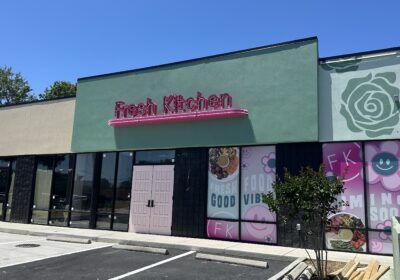Workshop starts ‘It’s On Us’ week

After joining over 200 colleges nationwide in the “It’s On Us” campaign, Student Government has partnered with the Center for Victims Advocacy and Violence Prevention to create a week-long event to promote the campaign.
Kicking off the campaign, Eileen Dabrowski, an advocate and educator for the Center for Victims Advocacy and Violence Prevention, gave a workshop about sexual violence in Greek Village on Tuesday night, shifting the focus from risk prevention to education, and understanding sexual violence.
“Empower peers through values,” Dabrowski said. “We don’t take values seriously enough because it’s much easier to blame others than help them.”
In a conversation-style workshop with students, Dabrowski encouraged them to offer themselves as support for their peers who may be victims of sexual violence.
“We don’t act like a community, and we need to better support each other,” she said.
Much of the discussion’s focus was placed on technology as a means of both victim shaming and support. Tweets using offensive language in regard to victims of rape and sexual violence demonstrated how victims could be shamed by means of video, picture or social media posts.
However, users have also taken to social media to create change and support victims, using hashtags such as #yesallwomen, #heforshe and #whyIstayed, which took over Twitter following the controversial decision of football player Ray Rice’s wife to stay with her husband following an instance of domestic violence.
Dabrowski also discussed the different issues that LGBT individuals face regarding sexual assault and violence, stating that she believes it’s important to serve more than just one population of victims.
“In instances of same sex domestic violence, terms like ‘cat fight’ are used for women in same-sex relationships, and ‘mutual battering’ is used for men in same-sex relationships,” she said. “We need to stop using these terms because they minimize the issue of sexual violence.”
On college campuses, consent is a gray area that affects all who choose to engage in sexual activity.
Under Florida law, those who are underage, mentally ill or under the influence of drugs or alcohol by any means are unable to provide consent for themselves, meaning that any sexual interaction involving alcohol is defined as rape.
“The law protects all people, but especially recognizes some groups as more targeted for sexual violence than others by refusing consent on their behalf,” Dabrowski said.
According to the Center for Victims Advocacy, one in four women will encounter attempted or completed rape, and most rape cases at USF involved alcohol and were committed by an acquaintance of the victim.
In addition to being a source of support for peers who have survived such assaults, students were encouraged to be advocates in their daily lives.
Dabrowski said she believes the major problem that victims are facing is minimizing the act of sexual violence.
“If society is telling us that women’s bodies are objects, then of course rape is viewed as no big deal,” she said.






